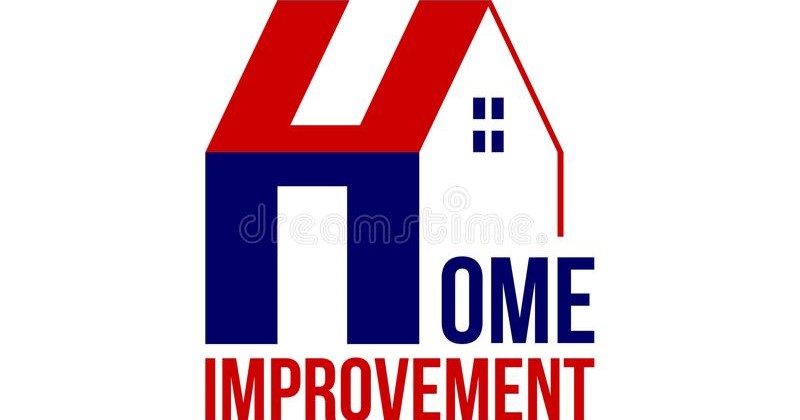
Ever dreamt of a kitchen that’s as stunning as it is functional? The heart of your home deserves an upgrade, but the price tag of a full-blown Atlanta kitchen remodel can feel like a punch to the gut. Here’s the good news: you don’t have to wait years to hoard cash!
There are numerous financing options available specifically for Atlanta homeowners, meaning you can transform your kitchen into the envy of the neighborhood without needing a small fortune upfront.
This comprehensive guide dives deep into the various financing options at your disposal. We’ll explore the pros and cons of each approach, eligibility requirements, and crucial factors to consider when making your decision.
So, grab a cup of coffee (because your new kitchen will definitely be coffee-worthy!), and let’s get started on making your Atlanta kitchen remodel dream a reality!
Understanding Your Project Scope and Budget
Before exploring financing options, it’s vital to solidify your project scope and budget. Here’s a breakdown of these crucial aspects:
- Project Scope: Define the extent of your renovation. Are you planning a complete overhaul, including new appliances, cabinets, countertops, flooring, and lighting? Or a more focused refresh, like replacing cabinet doors or upgrading countertops?
- Budget: Research average kitchen renovation costs in Atlanta. Consider factors like materials, labor, permits, and potential unforeseen complications. It’s wise to factor in a 10-20% buffer for unexpected costs.
By outlining your project scope and budget, you’ll be better equipped to choose the financing option that best fits your needs.
Financing Options for Your Atlanta Kitchen Remodel
Now, let’s delve into the various financing solutions available to Atlanta homeowners:
Cash-Out Refinance
A cash-out refinance involves replacing your existing mortgage with a new loan for a higher amount. The difference between the new loan and your current mortgage balance is disbursed as cash you can use for your kitchen remodel.
Pros:
- Potentially lower interest rates than other financing options (depending on market conditions)
- Access to a larger sum of money
- Can potentially consolidate other debts into the new mortgage
Cons:
- Lengthy application and closing process
- Affects your homeownership status – you’ll be responsible for a higher mortgage balance
- May require good credit score and equity in your home
Eligibility:
- Typically requires a minimum of 15-20% equity in your home
- Good credit score (varies by lender)
- Stable employment history
Home Equity Line of Credit (HELOC)
A HELOC is a revolving line of credit secured by your home’s equity. It functions similarly to a credit card, allowing you to access funds as needed during your renovation project. You’ll only pay interest on the amount you borrow.
Pros:
- Flexibility to draw funds as needed
- Interest is only paid on the used amount
- Potentially lower interest rates than personal loans
Cons:
- Variable interest rates can fluctuate
- Risk of overspending if not managed carefully
- Monthly payments may increase significantly if interest rates rise
Eligibility:
- Similar to cash-out refinance, typically requires a minimum of 15-20% equity in your home
- Good credit score (varies by lender)
- Stable employment history
FHA 203(k) Rehabilitation Loan
The Federal Housing Administration (FHA) offers a 203(k) rehabilitation loan specifically designed for financing home renovations. This loan allows you to include the cost of renovations into your mortgage payment.
Pros:
- Can finance both the purchase and renovation of your home
- Potentially lower down payment requirements compared to traditional mortgages
- Can finance a wider range of renovations than some other options
Cons:
- Strict eligibility requirements and inspection processes
- May take longer to close than other financing options
- May not be suitable for all types of renovations
Eligibility:
- Minimum credit score requirements vary depending on the loan type
- Must meet FHA property eligibility guidelines
- The renovation project must meet certain FHA standards
Personal Loan
A personal loan is an unsecured loan from a bank, credit union, or online lender. You receive a lump sum upfront and repay it with fixed monthly installments over a set term.
Pros:
- Relatively fast and straightforward application process
- No need for home equity
- Wide range of loan amounts available
Cons:
- Typically higher interest rates compared to secured loans
- Shorter repayment terms than some other options
Eligibility:
- Credit score requirements vary by lender (generally good credit required)
- Stable employment history
- Sufficient income to cover loan repayments
Contractor Financing
Some Atlanta kitchen remodel contractors may offer in-house financing options. These can be attractive due to their convenience and potential for lower interest rates compared to personal loans.
Pros:
- Convenient – financing is arranged directly with the contractor
- May offer competitive interest rates
Cons
Limited loan options and terms compared to banks or credit unions
- May be contingent on using the contractor for the project
Eligibility:
- Varies by contractor, typically good credit is preferred
Home Improvement Loan
Home improvement loans are unsecured loans specifically designed for financing home renovations. They offer fixed interest rates and repayment terms, similar to personal loans, but may have slightly better rates due to their targeted purpose.
Pros:
- Fixed interest rates provide budgeting predictability
- No need for home equity
Cons:
- Typically higher interest rates compared to secured loans
- Shorter repayment terms than some other options
Eligibility:
- Credit score requirements vary by lender (generally good credit required)
- Stable employment history
- Sufficient income to cover loan repayments
0% Interest Credit Cards
Some credit cards offer 0% introductory APR (Annual Percentage Rate) periods on purchases. This could be an option for financing a smaller kitchen remodel if you can pay off the balance within the introductory period (typically 6-18 months).
Pros:
- No interest charged during the introductory period
- Can be a good option for smaller projects
Cons:
- High interest rates apply after the introductory period if the balance isn’t paid in full
- Requires excellent credit score to qualify
Eligibility:
- Excellent credit score (typically 740 or above)
- Ability to manage credit responsibly and pay off the balance within the introductory period
PACE Financing (Property Assessed Clean Energy)
Please note: PACE financing is not available in all areas and may have certain restrictions. It’s crucial to research the specifics of PACE financing in Atlanta before considering this option.
PACE financing is a unique option that allows property owners to finance energy-efficient home improvements through a voluntary assessment added to their property tax bill.
Pros:
- Potentially lower interest rates than some other options
- Repayment is spread out over a long period (typically 10-20 years)
Cons:
- Not all renovations qualify – must meet energy-efficiency criteria
- Becomes a lien on your property, potentially affecting future sales
- Complex program with potential downsides – thorough research is essential
Eligibility:
- Varies by program and location
- Generally good credit score required
- Property must meet specific eligibility criteria
Choosing the Right Financing Option for Your Atlanta Kitchen Remodel
The ideal financing option for your Atlanta kitchen remodel depends on your specific financial situation, project scope, and risk tolerance. Here are some key factors to consider when making your decision:
1. Interest Rate: A lower interest rate translates to lower overall financing costs. Compare interest rates across different options.
2. Loan Term: Longer loan terms offer lower monthly payments but result in more interest paid overall. Choose a term that fits your budget and repayment goals.
3. Down Payment: Some options require a down payment, which can reduce your borrowing amount and potentially qualify you for a lower interest rate.
4. Credit Score: Your credit score significantly impacts the interest rates and loan terms you’ll qualify for. Aim to improve your credit score before applying for financing.
5. Risk Tolerance: Secured loans like HELOCs and cash-out refinances put your home at stake if you default on the loan. Consider your risk tolerance when choosing between secured and unsecured options.
6. Project Timeline: Match your financing option to your project timeline. Some options, like FHA 203(k) loans, have longer closing processes, so plan accordingly.
7. Contractor Rebates: Some contractors offer rebates or discounts for using specific financing options. Explore these possibilities before finalizing your decision.
Additional Tips for Financing Your Atlanta Kitchen Remodel
- Get Multiple Quotes: Don’t settle for the first financing offer you receive. Compare rates and terms from multiple lenders or banks to secure the most favorable deal.
- Factor in Additional Costs: Remember to factor in renovation costs beyond materials and labor, such as permits, appliances, and potential overruns.
- Consider a Budget Buffer: Unexpected costs can arise during renovations. Include a 10-20% buffer in your budget to account for unforeseen expenses.
- Plan for Repayment: Carefully assess your monthly budget and ensure you can comfortably afford the loan repayments. Don’t overextend yourself financially.
Conclusion
Financing your Atlanta kitchen remodel can empower you to transform your dream kitchen into a reality. You can find the financing solution that best suits your needs by carefully evaluating your options, considering your financial situation, and prioritizing responsible borrowing.
Remember: Consultation with a financial advisor can be highly beneficial to navigate the financing process and make.
Stay in touch to get more updates & news on Homeimprovement Plan!


